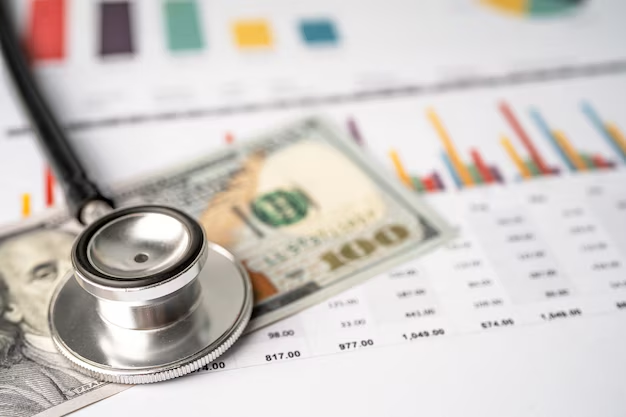Understanding the Impact of Medical Debt on Your Credit Score
Navigating the labyrinth of healthcare costs can be stressful enough without the added anxiety of wondering how medical debt might affect your financial future. It’s not uncommon to be caught off-guard by a medical emergency leading to substantial bills. But what happens when these unpaid bills become debts? Do they affect your credit score? Let’s explore this topic comprehensively to better understand how medical debt interplays with credit evaluations, and what savvy steps can be taken to safeguard your financial health.
🏥 What is Medical Debt?
Medical debt arises when individuals receive healthcare services and are unable to pay the full amount immediately. Unlike other forms of debt, which might be planned or anticipated, medical debt often emerges unexpectedly, often due to emergencies or accidents.
How Does Medical Debt Differ?
Unexpected Nature: Medical expenses are unpredictable compared to other expenses like car payments or mortgages.
Provider vs. Lender: Healthcare providers aren’t conventional lenders, so their approach to debt collection can be unique.
Debt Accumulation: Many individuals don’t accumulate medical debt by choice but as a necessity after health emergencies.
🏦 How Can Medical Debt Affect Your Credit Score?
The Path from Healthcare Bills to Your Credit Report
Medical debt doesn’t directly impact your credit score until certain events unfold. Here’s a simplified trajectory:
- Medical Service Utilized: You receive medical treatment and incur a bill.
- Bill Unpaid: If unpaid by the due date, it's termed as ‘outstanding.’
- Collection Agency: The healthcare provider might hand over this bill to a collection agency.
- Credit Reporting: If not resolved, the collection agency may report this debt to the credit bureaus.
- Credit Score Impact: The unpaid debt reported by a collection agency on your credit report can negatively impact your credit score.
Why Credit Scores Are Affected
Credit scoring models interpret medical collections like any other debt. However, newer models might weigh it less heavily than other types of debt due to the underlying circumstances, reflecting the involuntary nature of medical debts.
🧐 The Nuances of Medical Debt on Credit Scores
Recent Changes and Trends
Recent updates in credit reporting have brought about some changes:
- Grace Periods: Some credit scoring models now incorporate a buffer period before medical debt impacts your score.
- Different Weightage: Newer scoring models tend to give lesser weight to medical debts compared to other debts.
- Paid Collections: Reporting practices sometimes exclude settled or paid-off medical collections from impacting your score.
How Credit Reports Reflect Medical Collections
Medical debts, if sent to collections and unpaid, show as derogatory marks. Yet, once paid, these may not be considered in certain scoring models.
🛡 Strategies to Manage and Mitigate Medical Debt Impact
Communicating with Healthcare Providers
Negotiating payment plans directly with the medical provider can circumvent debt collection.
- Payment Plans: Discuss installment-based payments matching your budget.
- Financial Assistance Programs: Some institutions offer income-based assistance.
Proactive Payment Management
Taking charge of your healthcare debts proactively can diminish their potential impact:
- Setting Budgets: Allocate funds towards medical debt settlements as part of your financial strategy.
- Regular Monitoring: Keep tabs on medical bills and their due dates to avoid surprises.
Utilizing Consumer Protection
Remember, laws and regulations exist to safeguard consumers from unfair credit practices, encompassing:
- The Fair Credit Reporting Act (FCRA): Ensures accuracy and privacy in credit reporting.
- The Medical Debt Relief Act: Limits how long medical debt can remain on credit reports after being paid.
📝 Key Takeaways to Protect Your Credit Score from Medical Debt
Be Informed: Understand your medical bills and engage with your insurer for clarity.
Communication is Key: Work directly with healthcare providers to negotiate solutions.
Stay Alert to Credit: Regularly check your credit report for unexpected items and disputes.
Explore Legal Protections: Be aware of protection through acts such as FCRA to correct inaccuracies timely.
Adopt Smart Financial Practices: Develop strict budgeting strategies to accommodate unforeseen medical expenses.
📊 Quick Reference: Managing Medical Debt
| Action | Benefit |
|---|---|
| Communicate with Providers | Negotiate lower bills and set manageable payment plans. |
| Monitor Credit Reports | Identify and dispute inaccuracies proactively. |
| Use Protection Acts | Correct data and understand your rights in credit reporting. |
| Emergency Fund Planning | Prepares for unexpected medical expenses without major debt. |
| Stay Educated on Credit Scoring | Understand the weightage of medical debt in scores. |
Balancing medical needs with financial stability can feel overwhelming, yet proactive steps provide protection against undue credit score damage. Awareness of the nuances surrounding medical debt enables us to navigate its pitfalls more effectively, safeguarding financial stability while ensuring health needs aren't compromised. Always approach financial decisions related to healthcare with thorough planning and informed strategies. This knowledge empowers you to handle your medical financial obligations wisely and ensures your creditworthiness remains intact amid life's unpredictable emergencies.

Related Topics
- Am I Responsible For My Spouse's Medical Debt
- Am I Responsible For My Spouse's Medical Debt After Death
- Can Medical Debt Affect Credit
- Can Medical Debt Affect Your Credit
- Can Medical Debt Be Sent To Collections
- Can Medical Debt Garnish Wages
- Can Medical Debt Go On Your Credit Report
- Can Medical Debt Go To Collections
- Can Medical Debt Hurt Your Credit
- Do Medical Debt Affect Your Credit
